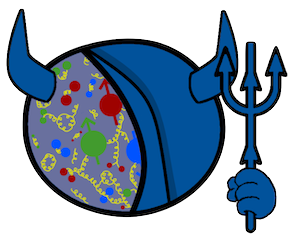Speaker
Description
The Boer-Mulders function is a transverse momentum distribution that describes the net polarization of partons within an unpolarized nucleon. A non-zero Boer-Mulders function suggests a handedness of the nucleon and gives rise to a measurable azimuthal asymmetry in Drell-Yan scattering. We suggest a novel approach utilizing DNN-based reconstruction techniques to extract unpolarized Drell-Yan asymmetries from SeaQuest E906 data, which can be used to extract the Boer-Mulders function. This reconstruction technique could be significantly faster than existing methods, potentially allowing us to lower statistical error on the angular-dependence coefficients $\lambda$, $\mu$, and $\nu$. With lower statistical error, we can calculate the value of these constants in more bins, allowing for more general extraction of the Boer-Mulders function, which is highly sensitive to the $p_T$ dependence of $\nu$. SeaQuest at Fermilab was a fixed-target experiment designed to detect the Drell-Yan process in $p+p$ and $p+d$ reactions. We discuss the steps involved in our DNN reconstruction process, including data preprocessing, network architecture design, and training strategies, while addressing challenges such as background estimation, and systematic uncertainties.

